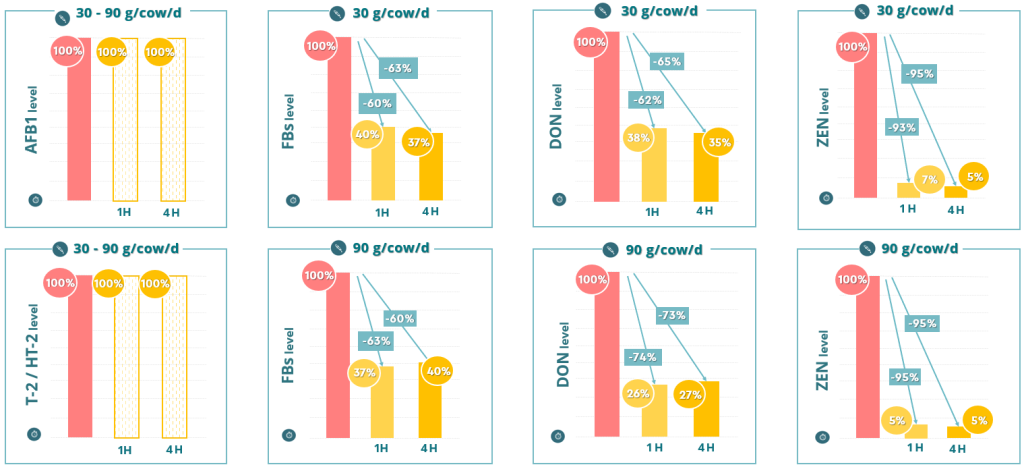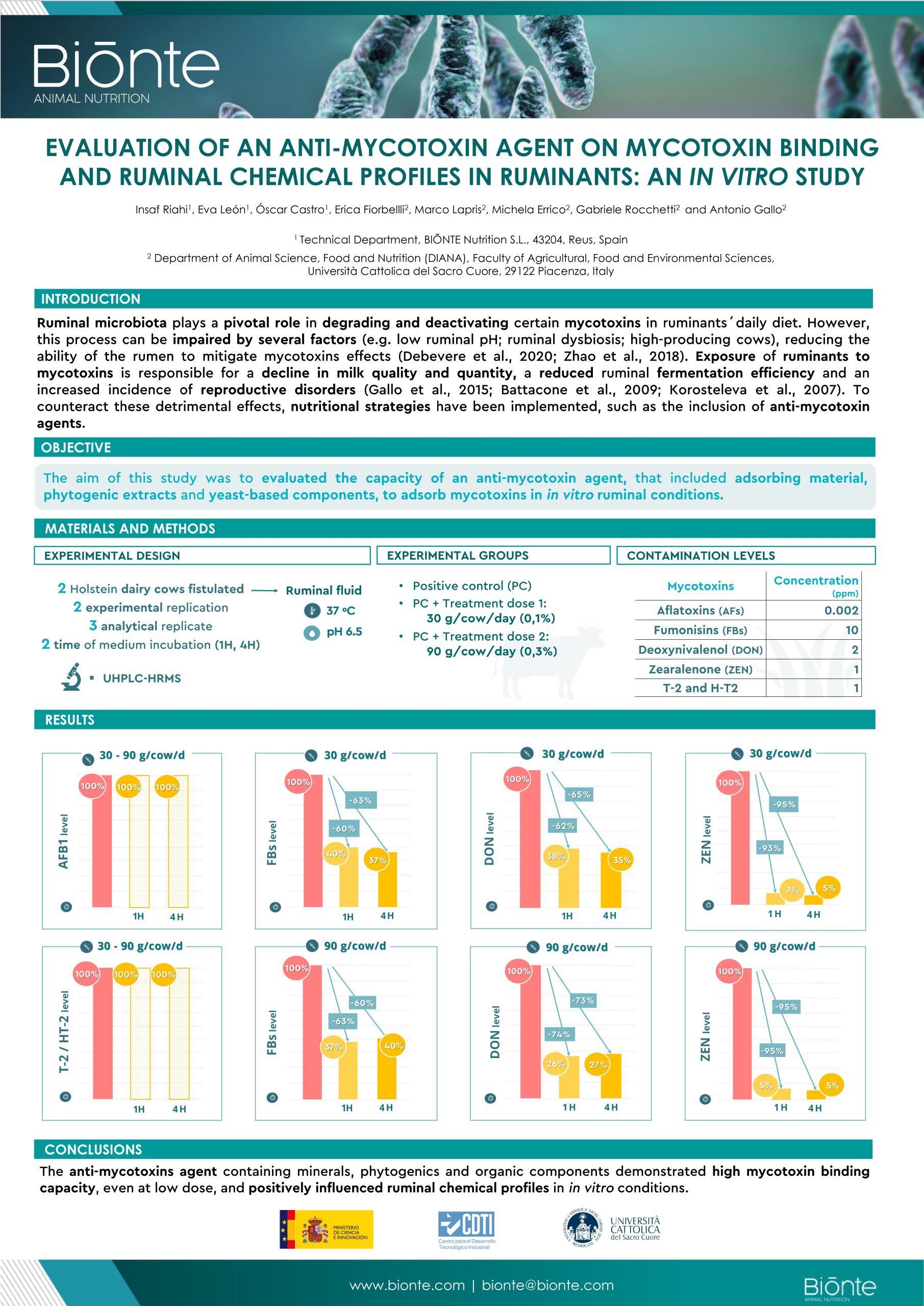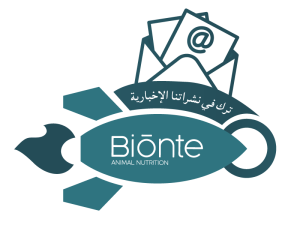INTRODUCTION
Ruminal microbiota plays a pivotal role in degrading and deactivating certain mycotoxins in ruminants´daily diet. However, this process can be impaired by several factors (e.g. low ruminal pH; ruminal dysbiosis; high-producing cows), reducing the ability of the rumen to mitigate mycotoxins effects (Debevere et al., 2020; Zhao et al., 2018). Exposure of ruminants to mycotoxins is responsible for a decline in milk quality and quantity, a reduced ruminal fermentation efficiency and an increased incidence of reproductive disorders (Gallo et al., 2015; Battacone et al., 2009; Korosteleva et al., 2007). To counteract these detrimental effects, nutritional strategies have been implemented, such as the inclusion of anti-mycotoxin agents.
OBJECTIVE
The aim of this study was to evaluated the capacity of an anti-mycotoxin agent, that included adsorbing material, phytogenic extracts and yeast-based components, to adsorb mycotoxins in in vitro ruminal conditions.
MATERIALS AND METHODS

RESULTS

CONCLUSIONS
The anti-mycotoxins agent containing minerals, phytogenics and organic components demonstrated high mycotoxin binding capacity, even at low dose, and positively influenced ruminal chemical profiles in in vitro conditions.




